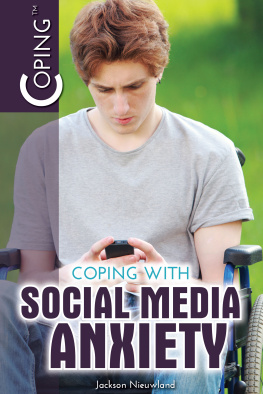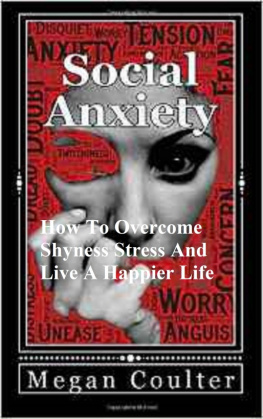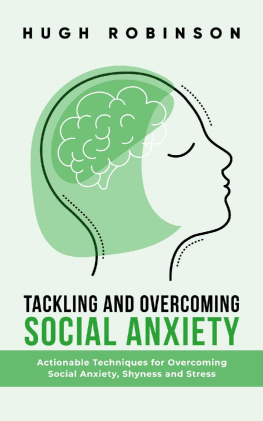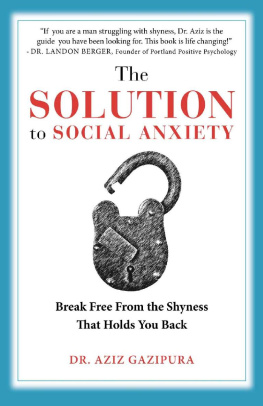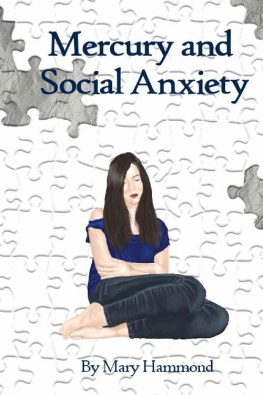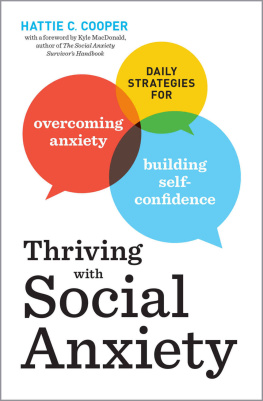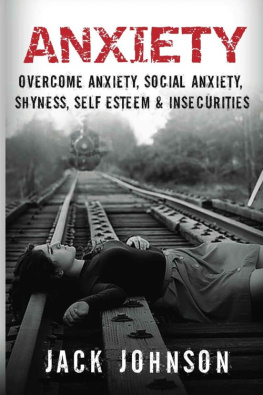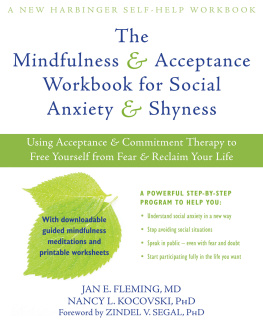
The author and publisher have provided this e-book to you for your personal use only. You may not make this e-book publicly available in any way. Copyright infringement is against the law. If you believe the copy of this e-book you are reading infringes on the authors copyright, please notify the publisher at: us.macmillanusa.com/piracy.
This book is dedicated to (and couldnt exist without) Nicolas.
Moe could fight injustice like a cornered tiger on one condition: as long as he didnt have to speak.
A lawyer by training, Moe was whip smart and had a reputation for being genuinely respectful. Despite his mild-mannered appearancediminutive, skinny, and balding, with two perfect circles of wire-rimmed glasses perched above a trim little mustachehis commitment to social causes like the rights of the elderly or the protection of vulnerable women was fierce. His experience spanned the globeat this point in his career, he had already worked in three different countries on three different continents.
As part of his idealistic crusade for justice, however, he often found himself in the most unidealistic of settings: meetings. It was at these meetings, in community centers and church basements with folding chairs and a lingering smell of old coffee, where Moes story played out. He told it like this: The other day I was at a meeting and one of the organizers turned to me and said, You know, Moe, when its just you and me you talk totally fine, but youre so quiet at meetings. I dont think Ive ever heard you open your mouth.
Moe was mortified. He knew, deep down, that his colleague spoke the truth. Moe was always attentive, always pleasant, but it was truehe never said a word. And now it was confirmed to Moe that his silence was obviousthat he couldnt simply hide in plain sight.
Its not that I dont want to say anything; I just dont know how to say it, Moe said. Everyone else seems to feel so comfortable, so confident. But as soon as I work up the courage to speak, the topic has changed. That happens all the time.
Not knowing what to say doesnt happen only to Moe. It happens to so many of us, particularly in todays world of cryptic, how-do-I-answer-this text messages and gotta-be-right Instagram captions. If youre wired or were raised like Moemore on this distinction shortlytechnology and the internet ensure you have a million reasons to second-guess yourself. Plus, you still have to battle the anxieties of in-person social interaction.
Like Moe, you may know firsthand the excruciation of teetering on the edge of speaking. Its like standing at the end of a ten-meter diving platform, your heart pounding at the prospect of leaping in. Remaining silent invites frustrationI knew that was the answer, or, Dammit, that was my idea, but the thought of jumping into the abyss of conversation is paralyzing. But after his colleagues comment, Moe decided it was actually worse to remain silent than to say something. Ongoing silence weighs a person down like a slowly accumulating pile of bricks in the lap. A few moments of silence can easily be shaken off, but hours of silence are nearly impossible to break, particularly without causing turned heads, exclamations of surprise, and crushingly offhand comments of, Oh, I forgot you were there!
So Moe decided to try to speak sooner rather than later: So I showed up to the next meeting with some notes jotted in my phone. I thought it would be easier if I wrote out what I wanted to say. But I couldnt do it. The worst part is that the guy next to me took my phone and read my notes to everyone. I think he thought he was doing me a favor, but I wanted to die. What kind of man cant read his own notes?
Once humiliated, twice shy. It took Moe a while to work up the courage to try again, but he did. Before the next meeting, he gamely typed out some more notes, but he still couldnt manage to say anything. I tried, he said, but my vision got blurry; I started to shake. It was horrible. Why does this keep happening to me? What the hell is wrong with me? Why cant I do what other people can do so easily?
From working in politics, Moe was used to having to try again. So he decided to push himselfto try one more time. I had a dinner to go tojust friendsso I thought Id try giving a toast, he said. I rehearsed it over and over in my head, but when I stood up I couldnt get past the first sentence. I had even worked a joke into it, but once I got past the first line I couldnt remember the rest of the joke, much less what else I wanted to say, so I just said, Thanks for coming, and sat down. And I thought, Oh my God, what an idiot.
Moes experience is so common it has a name: social anxiety. Social anxiety is self-consciousness on steroids. First there is a sense of being conspicuous, of sticking out like a sore thumb. There follows an urge to hide, to conceal, sometimes by staying away altogether, sometimes by showing up but remaining silent or staring intently at the floor. We worry well say the wrong thing, do something awkward, and get roundly, deservedly criticized for it. Therefore, so many of us feel stressed in class, at parties, in groups, at work, with strangers, on social media. We are convinced we are too much of something: too weird, too awkward, too annoying. Or that we are not enough of something else: not confident, not socially skilled, not competent. Finally, our bodies betray us; we are sure everyone notices our graceless blushing, sweaty palms, or trembling hands.
This may all sound familiar. Did your eyes light up in recognition at Moes story? Did you find yourself nodding your head as you read? Something else you and Moe have in common, Ill wager, is that at some point along this awkward, anxious journeyperhaps before a date, an interview, or a first day of schoola supporter has offered you some time-honored advice: Just be yourself!
This phrase is always well meant but can be phenomenally irritating. It seems so simple, but in the moment it feels impossible. Anyone who has been in Moes position knows how difficult it is to think through the buzz of anxietyhow it hijacks our ability to think, speak, and respond. Also, just be yourself implies you hadnt thought of that option. Oh, is that all I have to do? Silly me.
But despite all this, its also sound advice. Your true self is the self that emerges when you are with close friends, trusted family, or in blissful solitude. Underneath all that anxiety, youre equipped with everything you need. Theres nothing you need to fake, no image to manufacture. You are enough just as you are. Indeed, imagine if that self showed up at work, in relationships, and in the world. What would be possible? You could share your ideas and opinions. You could finally feel at ease. Youd have more bandwidth to deal with the world. You could feel comfortable in your own skin. Youd feel that home-sweet-home comfort, connection, and closeness wherever you went.
Therefore, in How to Be Yourself youll learn (finally!) how to put that advice into action. Youll learn why you feel the way you do, but more than that, youll learn what to do about it, and finish the book with a toolbox full of shiny new tools to try out. Well debunk myths you didnt even know you believed and break habits you didnt even know you had.
* * *
There are so many of us who feel socially anxious that standardized questionnaires have been developed to measure our experience. If you think you may have a touch (or more) of social anxiety, The more items you agree with, the more social anxiety you likely carry with you as you travel through life.
1.I get nervous if I have to speak with someone in authority (teacher, boss, et al.).
2.I have difficulty making eye contact with others.
Next page


